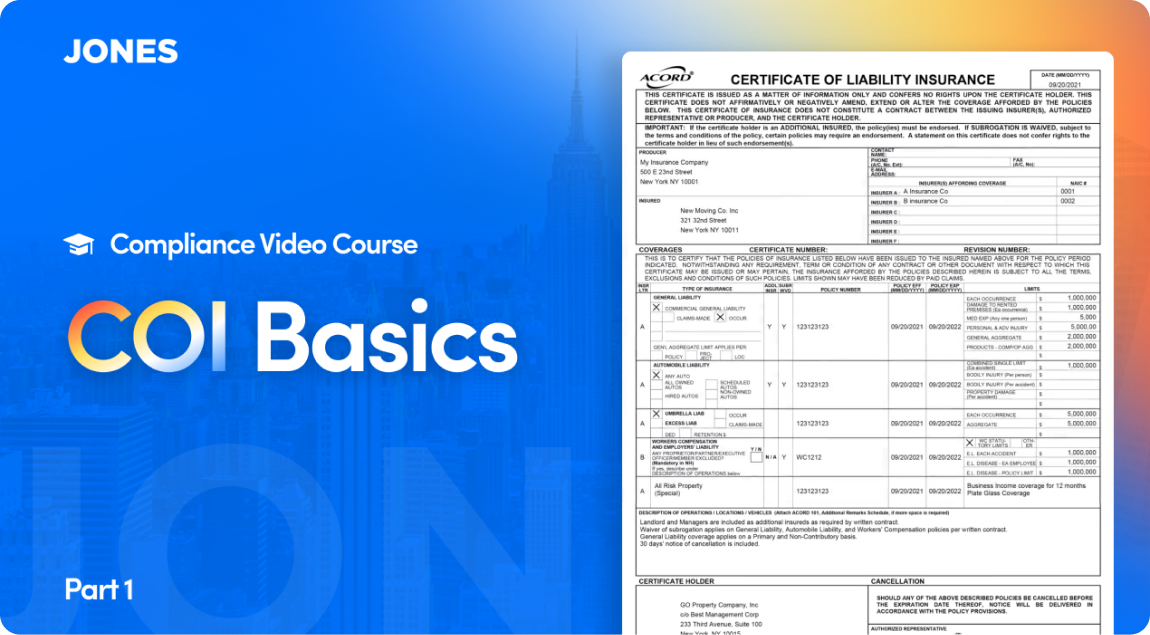The dizzying spread of Coronavirus will drive a radical shift in how real estate owners and managers operate properties and transact with tenants, guests, and vendors. During a crisis, it is natural to seek predictable forecasts that will drive planning and action to mitigate adverse outcomes.
The problem with pandemics is that the future is highly uncertain and coronavirus appears to be especially uncertain. Therefore, the traditional tools of forecasting and planning simply fall short. Real estate companies need to be thinking differently – they need to be risk-thinking.
In these unpredictable times, our goal at Jones is to help real estate owners, managers and developers to (1) Think about the risk intelligently, (2) Ask the right questions to flesh out viable scenarios, and (3) Devise a strategy to effectively manage risk in the age of coronavirus. This entry will focus on addressing the first objective.
So, let’s think about risk and let’s start with some basics: Risk-thinking is the process of asking the right questions about risk to produce decisive actions that mitigate loss coupled with hedges against high or extreme uncertainty of a loss.
In contrast to risk-thinking, traditional planning involves following a forecast that changes periodically based on known assumptions (ie. outcomes that are reasonably predictable). For example, you know that someone will slip and fall at some point in the lifecycle of your property – a forecast. However, where the person will fall, the magnitude of the injury and the individuals at fault, are all highly uncertain. The latter is practically impossible to forecast, which requires a hedge (ie. tracking insurance certificates).
In short, we need to think creatively about highly uncertain Coronavirus scenarios and ask the right questions to build smart risk mitigation strategies.
There is a foundational difference between the type of property management and decision making required in an uncertain world such as that of Covid-19, versus the optimal solutions for situations in which the inputs are close to being certain. For example, we hope that the United States infection curve will mimic that of China and South Korea, but what if cultural differences and slow government response compounds the spread of Covid?
Our region could be on a completely different trajectory with a larger segment of society getting infected and slower abatement in physical spaces such as commercial and residential buildings. What types of property management practices do you prepare for in such a world?
We need to fundamentally shift how we think about the risk of Coronavirus in real estate.
The common question Jones hears from customers is whether property owners can be held liable if a tenant, visitor or vendor files a suite from contracting Coronavirus while visiting their property? If only the insurance and legal industries could forecast for Covid, one could point to protection or exclusions in policies and contracts that hold parties liable. But, that’s not the world we live in today.
The power behind risk-thinking emerges when real estate companies ask the right questions about our highly unpredictable future. For example, different from above, the right question to ask is: under what circumstance would a tenant, visitor or vendor file a claim?
While it is a scientific certainty the virus spreads in dense urban centers such as New York, the exact effect on the behavior of tenants, visitors, vendors and their surrounding community is highly uncertain. Will all commercial office tenants request rent abatement because half of their workforce insists on working from home? Will the government regulate Covid screenings for vendors entering the building? The answers to these questions could sway the nature of a litigious claim.
Risk thinking is particularly important when framing a discussion about the future of real estate in the age of Coronavirus. By separating the certain from the uncertain, appropriate questions will emerge and adaptive solutions will be created.
In our next entry, you guessed it, we’ll ask the right questions to help owners, managers and developers navigate their risk management strategy.


